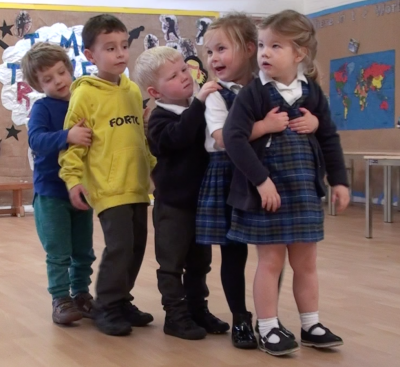Musical Learning - Peer Assessment and Self Assessment
Peer assessment is invaluable and the children need to be guided in how to achieve this in a positive, productive way. It helps if you are in the habit of giving constructive, spoken feedback during the music sessions. Be sure to give groups of children the opportunity to perform for their classmates, then ask the children in one group what they liked about another group's music. You could use the gentle Three Stars and a Wish method in which you and the children together think of three things you liked about a performance and suggest one way of improving or changing it. Then each group could have the chance to play or sing again, incorporating any suggestions made.
After taking part in a musical activity, the children benefit from self assessment - reflecting individually on how they did. The older and more musically experienced the children are, the more language they'll have available for telling in you or a partner about their achievement, or even writing a sentence about it. Children who are not yet confident with verbalising about music can give you a 'thumbs up' or 'thumbs down' or choose a smiley face card. Choose one or more age-appropriate and activity-specific questions to ask, such as:
- did you join in with the singing?
- did you tap your knees in time with the song?
- did you listen when other children played?
- did you play loudly then quietly? (specific to the task)
